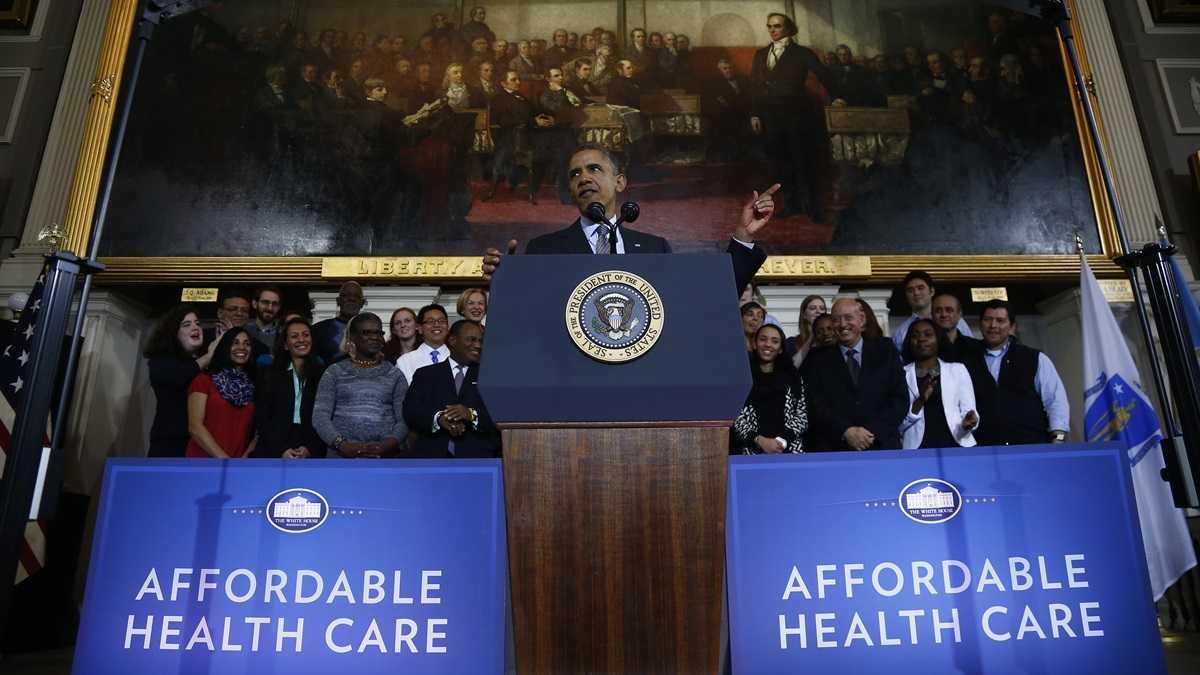Nearly 2 million in Philly area could lose health coverage if push for ACA repeal succeeds

(AP Photo/Charles Dharapak)
Donald Trump’s election and a Republican majority in Congress have put the Affordable Care Act on shaky ground. A repeal of the law, a signature policy of President Barack Obama, would put nearly 2 million people across Pennsylvania, Delaware and New Jersey in danger of losing their health coverage.
That includes those who have coverage through the online marketplace and through a Medicaid expansion.
It’s unclear what exactly a newly elected Congress will do. Short of repealing the whole thing, income-based subsidies and the individual mandate could be first to go, said Daniel Polsky, head of the Leonard Davis Institute of Health Economics at the University of Pennsylvania.
“In terms of things that would be attractive to repeal, those would be two at the top of the list, I would imagine,” said Polsky.
Nearly 700,000 people have individual health coverage through the online marketplace in the three states. That includes about 412,000 people in Pennsylvania, 250,000 in New Jersey and 28,258 people in Delaware, according to state and federal numbers.
A majority, upwards of 80 percent, receive financial help in the form of federal subsidies to offset the costs. Repealing those subsidies would directly affect those people, Polsky said, but it would also mean more instability for insurers and for the ACA marketplace as a whole.
“It would unravel pretty quickly, would be my guess,” he said.
Another key part of the Affordable Care Act that could be reversed is the federally funded expansion of Medicaid. Since Pennsylvania opted into that program, about 680,000 residents have gained coverage, along with about 473,000 in New Jersey and 10,000 in Delaware.
All combined, that’s less than 10 percent of the insured population in those states, said Robert Field, professor of health law at Drexel University. Still, he said, such changes could have a “ripple effect” throughout the health system.
“Safety-net hospitals and pediatric hospitals rely on Medicaid for their revenue, and they could be seriously impacted by this,” he said.
WHYY is your source for fact-based, in-depth journalism and information. As a nonprofit organization, we rely on financial support from readers like you. Please give today.

